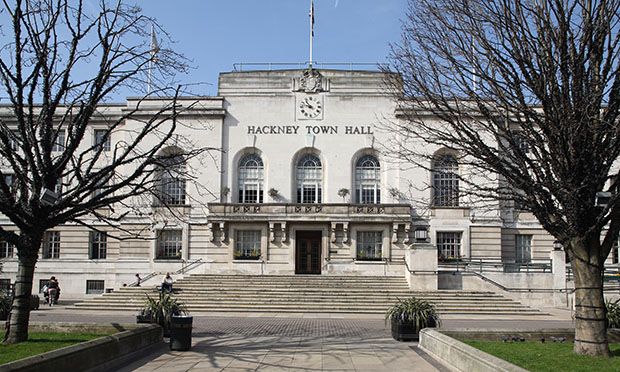Council pension fund owns £27 million in tobacco firms – Happy Stoptober!

Stoptober will see Hackney’s 43,000 smokers try to give up
Hackney Council owns £26.6 million of shares in major tobacco firms, the Citizen can reveal – twice what they were six years ago.
It comes as the council is encouraging people to give up smoking with events around Stoptober.
Hackney Council’s pension fund has millions of pounds’ worth of holdings in five tobacco companies, which means the fund benefits if the firms make more money from selling cigarettes.
Public health charity Action on Smoking and Health said it was “a strange time” for Hackney Council to be expanding its tobacco investments when other local authorities are divesting.
Hackney Council has confirmed it’s pension fund has £26.6 million of holdings in tobacco firms as of 31 March 2017, up from £10.4 million back in March 2011.
The percentage amount of the fund has increased by two thirds, from 1.3 per cent in 2011 to 1.9 per cent this year.
Hackney’s tobacco assets have also expanded from two companies – British American Tobacco and Imperial Tobacco – to five, with new holdings in Korea Tobacco, Ginseng Corporation, and Philip Morris International.
A recent Hackney Council press release for Stoptober urged residents to “ditch cigarettes for good this October”, noting: “Smoking is still the single biggest leading cause of preventable disease and death in Hackney, killing more than 200 people a year.”
Hackney Council has defended its tobacco assets, saying it has a legal duty to maximise its pension fund’s investments.
However, public health campaigners questioned the need for a council pension fund to make money from the sale of cigarettes.

Hackney Council defended its tobacco investments
Deborah Arnott, chief executive of Action on Smoking and Health, said: “A growing number of big investment funds like AXA are disinvesting from tobacco stocks as they no longer think they are an appropriate investment, nor that they are needed in a balanced portfolio to protect the interests of beneficiaries.
“And some local authority pension funds like Greater Manchester have also disinvested.
“So it’s a strange time for Hackney Council’s pension fund to expand its investments in tobacco, particularly given the council’s legal duty to promote the health of local people.”
A Hackney Council spokesperson said: “Last year we helped over 1,500 people in Hackney successfully quit smoking and we are steadfast in our commitment to reducing smoking in Hackney, which Stoptober forms part of.
“However, we also have a legal duty to maximise our pension fund investments for taxpayers and our staff.”
They said most of the fund’s tobacco holdings are “through an index tracker”: “This tracks the performance of the FTSE All-Share Index, with the increase in the proportion of tobacco stocks in our pension fund reflecting the strong performance of tobacco as a sector.”
They added that the council Pensions Committee follows Law Commission guidance: “This states that while funds may take non-financial factors into account, the decision must not involve a risk of financial detriment to the fund.
“The fund has previously taken legal advice on this issue and, in line with many other pension funds, is not currently satisfied that a commitment to exclude tobacco from its investment strategy would be in line with its responsibility to the taxpayer and the fund’s members, given the risk of financial detriment.”

Overall, shares in BAT are down 3.61% in the last year while the best ethical investment funds are up 19.39%.
The top ethical funds over the last 3 years are up 56.86% (78.66% over 10 years – First State Asia Pacific Sustainability).
It sounds like the Borough has hired a far too conservative dirty and lazy investment manager.
The news this summer read, “Tobacco companies’ share prices tumble after US commits to cutting cigarette nicotine levels: Analysts said that the move was a game-changer for the industry”.
“Shares in British American Tobacco, which had been trading close to an all-time high, tumbled well over 10 per cent before recovering slightly to end the day close to 7 per cent lower. That made Friday one of their worst days in years. Shares in Imperial Brands fell more than 4 per cent.”
Legally, what they are saying it true, however, it is far too often used as an excuse for conservative investment managers to be lazy and exercise their ignorance and prejudices.
It has been a long hard fight for ethical investment funds to gain the acceptance they have, the Borough should be inline with and supporting them. Financially, there is no excuse not to.
Who are their advisors? The problem is with that choice.
This parallels my current experience, where a FTSE-based fund has been doing OK, but conspicuously less well than ethically invested ones. So, since ditching the tobacco shares would “not involve a risk of financial detriment to the fund”, the Council has no legal basis for refusing to stick to its present, unethical investment policy.
I don’t know what rules LB Hackney has to operate under, but if it had only invested in property in Hackney, it would have increased its wealth 700% over the last two decades.
The Greater Manchester Pension Fund (GMPF), the largest local government pension fund in the UK (circa £16 billion), was the first fund to divest from tobacco, and has diversified its investments to focus on innovative and ethical local projects.
In 2014 it provided a £25 million investment fund to build over 200 affordable homes in the Greater Manchester area.
The London Borough of Newham Pension Fund statement of principles in 2010-11 excludes tobacco companies on the basis that outstanding litigation poses an investment risk. As have Croydon, Brent and Suffolk County Council. Councils’ u-turns taken on legal opinion.
Guidance issued by the ‘Department for Communities and Local Government’ says that trustees do have some room for manoeuvre.
“Although schemes should make the pursuit of a financial return their predominant concern, they may also take purely non-financial considerations into account provided that doing so would not involve significant risk of financial detriment to the scheme and where they have good reason to think that scheme members would support their decision.”
It allows local authorities to take into account the “public health implications” of their investments, as the Borough also has a legal duty to promote the health of local people.
Big Tobacco is making its money by exporting death overseas to developing markets where it sells its products as “superior” brands in comparison to local products to less informed consumers, placing a burden on their healthcare systems. For example, 40% of global tobacco goes to China where it is the number 1 cause of death, or 33% (approx) of male deaths in Kazakhstan and in Turkey. Tobacco-related deaths have tripled in the last decade.
It is, of course, lobby furiously across the world to stop such anti-smoking policy changes and tobacco control while pedalling death.
In the developing nations, it is using techniques that would be illegal in the West to get consumers hooked.
Peter Baldini, chief executive of the World Lung Foundation, said “The tobacco industry thrives on ignorance of the true harms of tobacco and using misinformation to subvert health policies that could save millions.”
There is only one decision to make.